6 Pioneer Skills: Incredible Lessons You Can Learn
Today, I have 6 Pioneer Skills: Incredible Lessons You Can Learn! Pioneer skills have the power to teach us tons of lessons that we otherwise might have forgotten, or maybe never learned. You and I have been blessed to live in a time where most of our tasks and daily routines come easy for us, but that can also be considered our greatest downfall.
Many have become pretty lazy and far too dependent on today’s technology to meet our every need. A number of crucial life skills that our parents and grandparents once knew have long been forgotten because some people feel they no longer are necessary.
What if you were to wake up one morning and find that technology, along with its comforts, is no longer available to you? Would you still be able to provide for your family even when the rest of the world seemed to be forcibly shoved back into the dark ages? My guess is, probably not.
That’s why I strongly encourage you to keep reading to find out about great lessons that you can learn from pioneer skills. Because who knows, your family may have to depend on what the family skill set is to be able to survive.
Items I Recommend:
- Hand Crank Can Openers
- Hand Egg Beater
- Hand Meat Grinder
- Garden Seeds: I purchase all of my garden seeds from this company: SeedsNow
- Danish Whisk
- Apple Peeler/Slicer
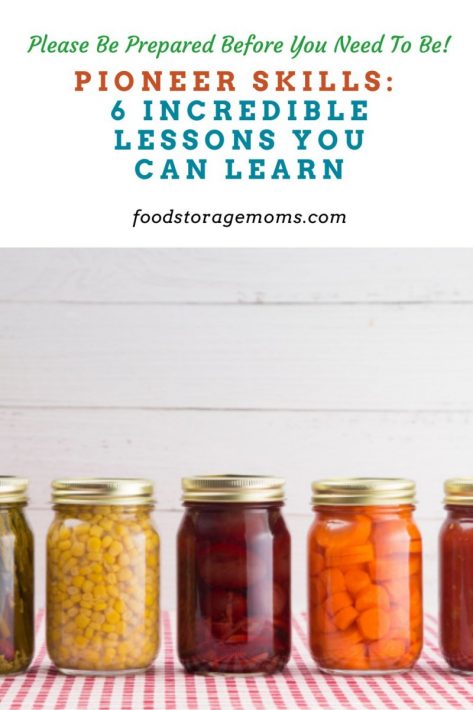
6 Pioneer Skills: Incredible Lessons You Can Learn
Foraging for Food
Heaven forbid, but there may come a day when your local grocery store shelves will lay completely bare. Where will you turn to so that your family doesn’t starve to death? Foraging is an essential skill that all pioneers knew how to do and one that you should know about too.
Start by learning what wild plants are edible in your area. This is vital because some plants can actually be quite poisonous if ingested. Once you have a good grasp on which ones are safe, start venturing out into the wild to see what you can find. You may be surprised at just how many edible plants are actually growing right in your own backyard.
Here in Utah, the early pioneers had a tough time generating enough food to survive. They were able to get through the years 1848 and 1849 by eating the bulbs from a native plant called a sego lily (species: Calochortus nuttallii). It proved to be such a significant lifesaver that it became the state’s official flower. The plant sports a beautiful flower, even after being cooked, so they added a special touch to colorful food dishes.
Check out these posts for some great ideas:
- Can I Eat Chickweed: Edible Weeds
- Can I Eat Dandelions? Other Edible Weeds
- Can I Eat Plantain? Edible Weeds
- Can I Eat Red Clover? Edible Weeds
- Can I Eat Lamb’s Quarters? Edible Weeds
Hunting and Fishing
Of course, foraging isn’t just limited to plants. You can also learn how to catch fish and hunt large and small game so that you’ll always have a protein-rich meal on the table. Wild fish and game were two of the main staples in a pioneer’s diet and helped to keep them strong and healthy throughout their long journey, and as long-term sources of food once they reached their destination.
If you don’t have any experience with hunting or fishing, start by doing some research on the subject. There are plenty of helpful books and online resources that can teach you much of what you need to know. You may even want to take a class at your local community college or nature center or go on a hunting trip with a few friends or a guide who have experience. How To Make Heat In A Can For Hunting or Survival
Learning to Garden
Providing your own vegetables, fruit, and herbs for your family is not only a healthy solution, but it’s also a great way to save money at the grocery store. But in order to be successful, you’ll need to know how to properly plant and care for your garden.
Some preppers suggest you plant more unique and costly veggies and herbs in your garden so you can save even more money. As for me, I love to plant my tomatoes, squash, beans, some herbs, and other common plants that I have some experience growing and using in my meal plans.
Last year we supplied a number of families in our neighborhood with fresh tomatoes, and I know many bacon and tomato sandwiches were enjoyed all summer long.
If you’ve never had a quality garden before, don’t worry, it’s not as difficult as it sounds. You can find plenty of helpful tips and tricks online or from your local nursery. With a little bit of practice, you’ll have a thriving garden in no time. How to Start a Garden
Canning and Preserving Food
Once you’ve grown your own food, it’s important to learn how to preserve it so that it will last through the winter months. Canning and preserving food was a common practice back then, but has become less popular today due to the time it takes. We loved canning as a family as the girls were growing up. I miss those good times in the kitchen!
There are two methods of canning, water bath canning, and pressure canning. Water bath canning is typically used for fruits, jams, jellies, and pickles, while pressure canning is reserved for meats and vegetables.
If you’re new to this process, there are plenty of instructional videos and articles online that can walk you through the steps. And once you get the hang of it, you’ll be able to enjoy your homegrown food all year long.
Another skill is dehydrating food. Of course, it was done differently back in the day since pioneers didn’t have electric dehydrators. Most foods were dried by the sun and it took a while to learn and implement. I’ve dehydrated many different food products over the years and enjoy having them available in my pantry.
- Home Canning-Important Do’s and Don’ts
- 10 Awesome Facts About Canned Foods
- How to Properly Store Food for Long-Term Storage
Cooking from Scratch
In today’s world, it’s so easy to just pop a frozen pizza in the oven or order take-out from your favorite restaurant. But what would you do if there was no electricity to power your oven, or if you couldn’t get to the store to buy food?
Cooking from scratch may sound daunting, but it’s really not that difficult. Start by stocking your pantry with basic ingredients like flour, sugar, salt, and spices. Then, when you’re ready to make a meal, you’ll have everything you need on hand. There are plenty of recipes available online or in cookbooks that can help you get started.
I close most of my daily posts with the admonition to teach our kids and grandkids to cook from scratch. I believe it is an important skill that should be passed from generation to generation.
Raising Livestock
Raising animals on your property may sound like a huge stretch for most of you, and I totally get it. You would be rewarded with meat and eggs to provide protein for your family if you have the space, the zoning allows it, and you have the know-how. You don’t need to go all out and start raising a bunch of barn animals right away. Start off small by getting a few chickens. Not only will they provide you with fresh eggs, but they’re also relatively low-maintenance.
If you’re interested in raising larger animals like cows or pigs, there’s a bunch of work involved. But if you’re up for the challenge, you’ll be rewarded with fresh meat that’s free from hormones and antibiotics. Yes, there are upfront and ongoing expenses, but if done right, it can prove to be pretty cost-effective in the long run.
Basic First Aid
Accidents aren’t going to stop just because doctors and skilled professionals are no longer available in an emergency situation. You need to learn about basic first aid so that you can handle minor injuries and illnesses on your own. An untreated injury that becomes infected could prove disastrous for one of your family members if you don’t know what to do.
Fortunately, there are plenty of instructional videos and articles available online that can teach you what you need to know. You may even want to take a first-aid class at your local community center or Red Cross chapter.
Herbal Remedies and Herbal Medicine
Herbal remedies and herbal medicine were the only kinds of medicine available back in the day. While modern medicine has come a long way, there’s still a lot to be said for using herbal remedies to treat common ailments. For starters, they don’t have as many negative side effects as modern medicine has been known to cause. The Best Herbal Plants to Grow for Homemade Tea
If you’re interested in learning more about this topic, there are plenty of books and online resources that can teach you everything you need to know. Another thought is that you may even want to grow your own herbs so that you always have them on hand.
Carpentry Skills
Should you ever be forced to evacuate your home, would you know how to build a shelter to keep your family out of the elements? Having basic carpentry skills would certainly come in handy should you ever find yourself in that situation.
Even if you never find yourself in a survivalist situation, learning how to build things with your hands can be incredibly satisfying. There are plenty of instructional videos and articles available online that can walk you through the basics. There are also plenty of volunteer jobs in your community that could provide you with the hands-on training that you need.
What are pioneering skills?
I quote, Wikipedia, “Pioneering skills include knot tying (tying ropes together), lashing (tying spars together with rope), whipping (binding the end of a rope with thin twine), splicing (joining or binding the end of a rope using its own fibers), and skills related to the use, care and storage of ropes, spars and related pioneering equipment.”
Of course, there was much more to being a pioneer than learning rope skills, such as the things we’ve outlined above.
What skills did pioneers need to survive?
They planted a garden, did blacksmithing, milked their own cows, raised chickens, woodworking, made candles, and had to learn to take care of their own waste.
What are some of the most important tools a pioneer needed?
Here’s the deal, every pioneer had a gun, ammunition, ax, traps, fishing line, and hooks. They basically had a hoe to turn the soil and keep the weeds under control by breaking up the soil.
They would hunt for meat and tend to their crops or garden, as we call it.
What was life like for early pioneers?
Now, remember families were large back then and only one child would inherit the family fortune or home and land because that would have been the item worth inheriting. Families had to leave the area if their crops failed or if they had a harsh winter. They would move on to a new frontier hoping for a better life.
What did pioneers do for a living?
Pioneers had some unique skills as blacksmiths, trappers, hunters, and tanners, but also some common ones you see today like carpenters, loggers, farmers, and ranchers. The number of people involved in agriculture was significantly higher than what we see now.
How did pioneers live?
If you think about it, they had to find land near a river, stream, or lake, so they would pull up their covered wagons and make tents or lean-tos as temporary shelters. They needed water from the source nearby to survive for hydrating, bathing, cooking, and growing their crops. We all know storing water should be the number one item we store, even if we live by a quality water source. Just like back in the “old days”, water can become scarce or contaminated. Be sure to stock up on water!
I’ve written dozens of posts about water storage, filtration, and various sources to consider. Check out my archive and get the info you need.
Why You May Want A Dutch Oven
Here are my thoughts on having a Dutch oven. You can boil water, make a peach cobbler, and even make a pizza in on. I highly recommend a 6-Quart Dutch Oven. It’s not too heavy to lift and carry and you can stack other Dutch ovens on top and bake two meals at a time. 6-Quart Dutch Oven
Final Word
Pioneer skills are a great way to become more self-sufficient and prepared for anything life throws your way. And with just a little bit of practice, you’ll be an expert in no time. What are some other pioneer skills that you’ve learned that would be important to know that you’d be willing to share with others? I’d love to hear from you! May God Bless this world, Linda
Copyright Images: Canned Food AdobeStock_211844185 by pamela_d_mcadams

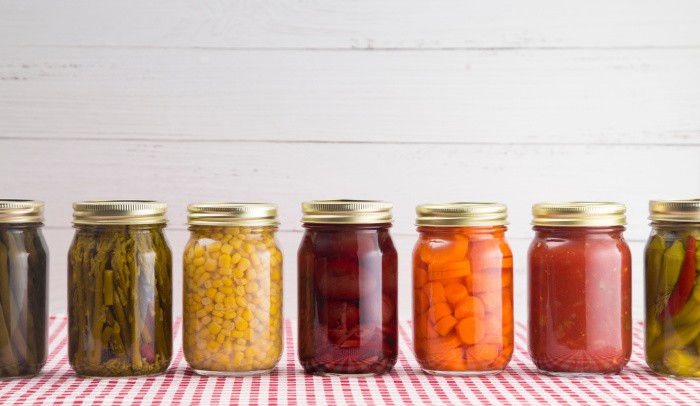

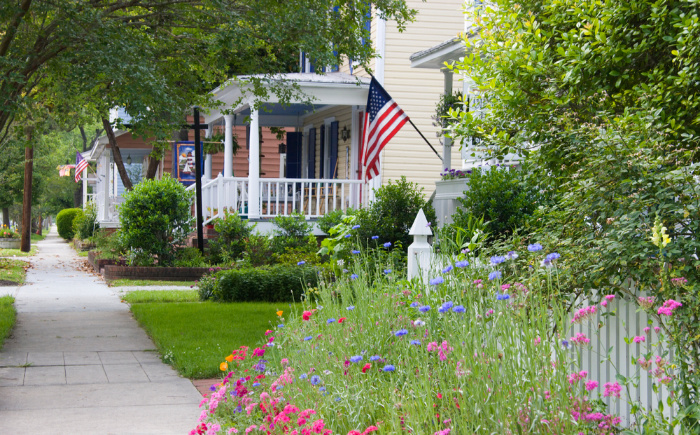
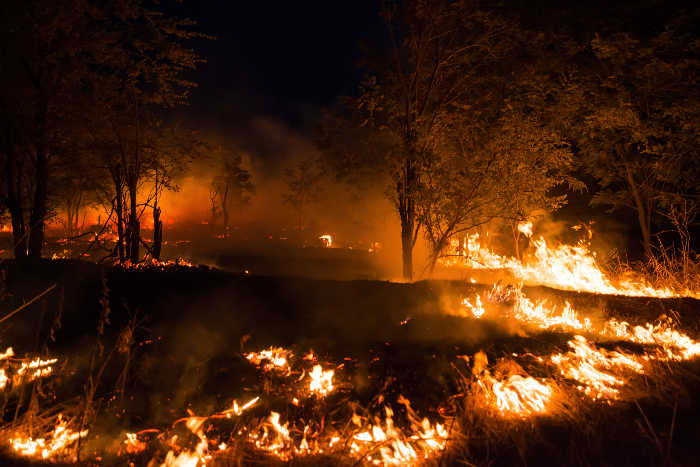


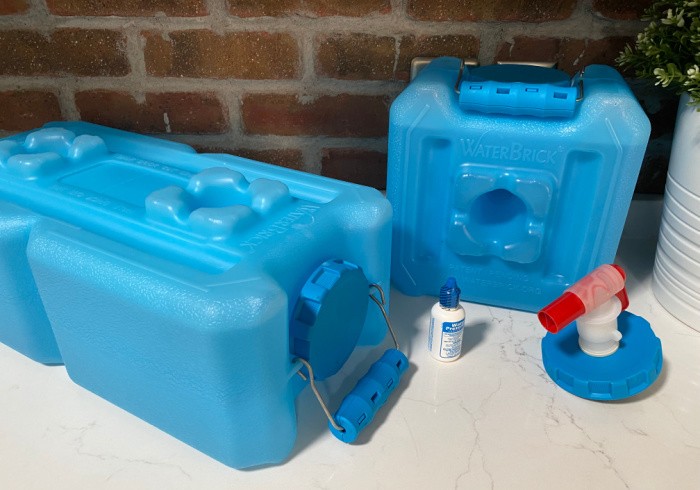
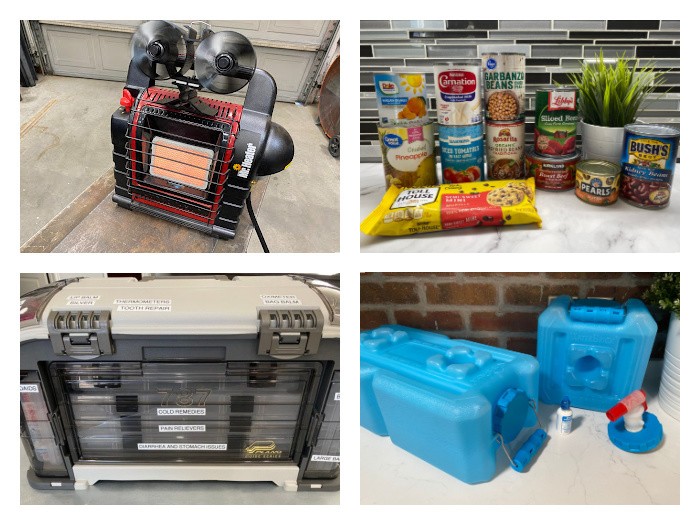













I don’t get hung up on meat without antibiotics. I do raise without unnecessary antibiotics and no growth hormones. There are times you treat animals just like yourself when your sick. You can’t just ignore things like pink eye and hope for the best. That would be a several thousand dollar mistake that’ll turn into tens of thousands because it’ll spread. Things will escalate on your safety when it gets into your neighbors cattle too.
Common sense goes a long ways and that too is a pioneer skill.
Hi Matt, it really does go back to raising our own food whatever that may be. Commonsense does go a long way! Linda
Linda, you’ve turned out another excellent article. The basic problems with foraging are twofold: knowing what is safe to eat and finding enough of it. If Jane and I had to forage for food here in the desert we’d starve, not so much from not knowing what we could eat as from scarcity of edibles. There’s some Mesquite around, but at least half of the native plants here are toxic.
I’m harvesting prickly pear from a neighbor who doesn’t use them. They are really good so long as you can avoid the glocids (I singe them off with a long nose propane lighter). I’ve made prickly pear jelly, syrup and margaritas with them before. You can also de-thorn, and cook the pads (by boiling, sauteeing or baking). The pads are called Nopales and are even sold in our local supermarkets. While they can be peeled and eaten raw they are MUCH better cooked–and you have to cook them long enough to boil off the slimy juice that comes out of them.
Chollas, at least the immature fruits can be eaten raw, but are best cooked–but man, oh man, the spines are really nasty and they are hard to pick off without getting stuck. Then there’s the fruits of Barrel Cactus, which are okay raw, again, better for you if cooked. You can slice open the fruits of Hedgehog Cactus, scoop out the pulp and eat it raw–some are sweeter than others. I’ve done the same thing with Prickly Pear. The basic problem with any of these is they are seasonal and they all pretty much bloom and set fruit at the same time. Saguaros produce an edible fruit too, but we don’t have any of those around here.
We do have wild bees, so it might be possible to find honey. And in the short run there would be plenty of quail and rabbits–but those would be gone very soon. The same goes for pack rats, kangaroo rats, lizards, snakes and ground squirrels. There are deer, elk and javelina up in the mountains close by but it wouldn’t take very long for people to kill them all off. A better bet would be the local rancher’s cattle, and they wouldn’t be too happy about that unless you had something of value to trade.
And that doesn’t even get into the lack of water should the grid go down.
Hi Ray, thank you for your kind words, my friend!! Thanks for sharing this information with all of us. My grandson lived in a cave with a moneyless guy for several months in Moab, Utah. He learned a lot about the Prickly Pear. I need to ask him again about all the edibles he learned to eat there. Yes, in a cave, boy did he learn a lot. He could easily live off the grid. LOL! Now he lives nearby, he’s my oldest grandson. Life is good when you learn new skills. Linda
Agree with Matt on taking care of animals and using common sense. Husband grew up on a dairy farm and they always had a bull around also. Always had chickens too. We talked about having a hobby farm when we were younger but never did it. Now we’re pushing 70 and don’t have the energy to start over. However, if things go south we will raise chickens or rabbits and we don’t care what the neighbors say!
Hi Paula, I had the same hobby farm dream, my husband not so much. Where I live now, people have chickens and rabbits, no HOA. Life is good now. Linda
My first thought.#1, start the genny! (no, not really.) we would be ok for cooking, and most daily life things, for several days. we would be going to bed with the chickens.Our house is very dark.
of list… check, check, check, check.check.check- for at least one of us. My carpentry skills not so much..measure i can do. cut with handsaw ,naw!(yes we have a few, dont forget extra hacksaw blades. without them the frame is just scrap metal.
…also note and consider…
Every time one moves location- there is a gardening learning curve, necessitating change, and even from year to year. Getting to location, having necessary time to build soil, to maintain soil health are important things. if you have one rake, one hoe you should get at least 2 more.same for rakes, shovels,post hole diggers,. common tools that require no special skills to use…if one does not have extra handles should get them now, with anything needed to replace, sometimes one needs a screw to secure, or a wedge …
Most foraged plants are high in vitamins and minerals unfortunately my family can not eat greens, except in very small amounts. The exception is spinach.it can be eaten in regular serving sizes in raw form only.- due to high absorption of K1.almost every foraged plant is good food for rabbits and chickens. there are a few that should be fed only in small amounts- like clover- honeysuckle, kudzu, wild lettuce , and sorrel are preferred by rabbits.
i saw a post somewhere… it said, “my chickens will not eat wet/or fermented food”. the answer to that is; they are over feeding production feed. cut to 1/3 for one day ,then- next day… have fermented food ONLY…they will eat it.. should add cultured foods to start ferment.sour cream, yugurt, old milk etc,
Hi Denise, great comment! I always say one is none, we always need an extra shovel or hoe. Great tips for all of us, thank you, Linda
Not only does one need the tool and a replacement,…How can anyone help you clean the grass from a garden or rake hay without the tool required?. With one implement, work takes longer, There is a saying that many hands lighten the burden..
Hi Denise, this is so true, many hands do lighten the load or burden. Linda
Sewing! Don’t forget being able to make clothes when what you have wear out or for the kids as they grow. Also blankets for winter, aprons, bed sheets (which can be used for clothes, etc.) And shoes. Being able to repair or even create some type of foot covering could be essential.
Hi Tracy, yes, sewing is so important!! I just took my serger and sewing machines in to have them serviced. I can do the oiling but I like to ensure they are always in tip-top condition! I have always wished I could make leather shoes!!! I made all of my girl’s clothes including blue jeans until they realized it wasn’t “cool” anymore to wear handmade clothes. Now they buy clothes from thrift stores. It’s a skill we all need for sure. Great comment! Linda
A common thing I come across are lists of “old skills” such as leathercrafting, blacksmithing, and various homesteading skills in addition to skills such as engine repair or construction. It seem daunting and realistically most of us can not learn so many skill sets, hobbies or crafts and we have to focus on the most essential skills and knowledge on how to keep ourselves supplies with food, water, shelter and so on. Most of your readers are voracious students wanting to learn as much as they can and that’s common for preppers or survivalist types.
What I have observed is that many people who are good at fixing and making things seem to have an almost magical and uncanny ability to make things out of almost any material or to rebuild or repurpose items by modifying them.
I find books that are collections of craft projects are helpful to learn this adaptive thinking. So if we have any hobbies or interest and we apply techniques and methods of one craft to another we can expand our abilities. And with a collection of books or friends with skills we have the chance to learn more things. Of course the books or personal notes also serve as references if we forget something.
If one collects enough tools, snaps, buttons, rivets, cordage, tape, glues and so on we can usually figure out how to fix, refurbish or build a thing. The more crafts and projects we are exposed to the more adaptable we become. And one does not have to learn everything about blacksmithing just to learn how to make a knife or be a great cook to learn how to make hardtack. We can learn how to make or do specific things. Maybe we only know how to build one type of shed or can only keep our own car running, but that may be enough or a base to build on.
But if everything falls apart, even those without a specific craft such as plumbing or sewing can find someway to provide ourselves with a “post apocalypse” career or job such as digging out latrines, or scavenging for plastic containers or maybe you reuse old sweaters to knit socks. Maybe you have a couple of used canoes and you can help others with a ride or take them out to fish. Many of us know more or can do more than we think.
I like to be positive and motivate people to prepare, to stock up and develop skills and not feel they can’t survive or become more self reliant. I’m still feeling I need to do and learn more after being into preparedness for years.
Hi Frank, I have to admit I got emotional reading your comment. I feel so strongly that people need to know skills and have items to repair things. They must learn to make bread, cook from scratch, and the list goes on and on. My husband and I belong to The Exchange Club here in Utah and we talked about how to help others learn to cook in our meeting this morning. Your comment nailed my thoughts. We NEED people to teach their kids and grandkids all of the things you mentioned. I love your thoughts on collecting books, excellent idea!! Thank you, Linda